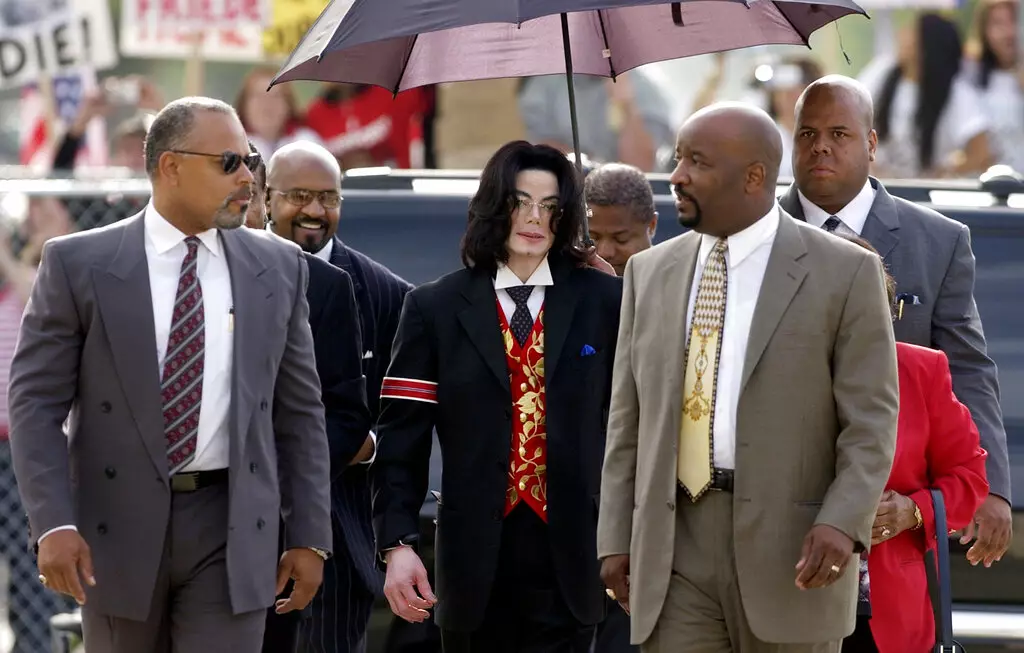Channel 4 is embarking on an ambitious documentary series titled “The Trial of Michael Jackson,” produced by Wonderhood Studios. This new venture aims to unravel the multifaceted story of the iconic pop star, focusing not only on his rise to fame but also on the pivotal 2005 criminal trial that captured global attention. This series is set to provide a fresh perspective, featuring contributions from individuals who have remained silent until now. Their insights promise to shed new light on the complexities of Jackson’s life and the often tumultuous relationship he had with the media.
The documentary will delve into the highly publicized trial where Jackson faced allegations of molesting 13-year-old Gavin Arvizo. Despite the severe nature of the accusations, Jackson was acquitted of all counts, a verdict that sparked widespread debate and left many questions unanswered. This series will not only recount the details of the trial but also explore how Jackson’s fame intertwined with public perception and media scrutiny. By revisiting past events with the benefit of hindsight, the series endeavors to paint a more comprehensive portrait of a man constantly under the public eye.
Jackson’s legacy is as layered as it is controversial. Following the trial, the narrative concerning Jackson’s personal life took on new dimensions, particularly after the release of “Leaving Neverland.” The documentary featured allegations from two men who asserted that they were assaulted by Jackson during childhood. This particularly enraging account reopened wounds and sparked renewed scrutiny over Jackson’s actions, ultimately becoming one of Channel 4-HBO’s most viewed and debated projects in recent memory.
The upcoming documentary series looks set to balance these polarizing views, offering an insightful investigation into Jackson’s life, his artistry, and the allegations. By incorporating a wide range of voices and perspectives, “The Trial of Michael Jackson” aims to challenge the audience to reconsider their preconceived notions about the singer.
As cultural landscapes shift in the wake of movements like #MeToo, significant changes are also emerging in the standards of filmmaking. The British broadcasting union Bectu has recently introduced a groundbreaking initiative with the establishment of the UK’s first registry for intimacy coordinators. This move highlights the increasing emphasis on ensuring safety and professionalism during intimate scenes in film and television.
Intimacy coordinators serve a pivotal role, providing guidance and support for actors engaged in intimate scenes. Their presence has become standard practice on high-profile projects such as “Normal People” and “I May Destroy You.” This evolution in the industry underscores an important cultural shift—one that emphasizes respect, safety, and the industry’s responsibility to foster an environment where performers can feel secure and supported.
Bectu’s initiative reflects a growing recognition of the vital role that intimacy coordinators play. As Philippa Childs, head of Bectu, stated, these professionals give indispensable support during various phases of production. The widespread recognition of their importance marks a significant cultural transformation within the industry.
On a different note, the BBC is set to break new ground within the realm of television as it announces its Gaelic drama, “An t-Eilean” (The Island). Featuring a talented cast that combines local talent with recognized names, this high-production series will be the most expensive Gaelic drama ever produced. Scheduled to premiere in early 2025, it aims to bring the rich cultural landscape of the Scottish western Isles to a broader audience.
The inclusion of both Gaelic dialogue and English reflects an artistic decision that acknowledges the region’s linguistic diversity, aligning the show with other successful bilingual series like “Keeping Faith.” With its unique storytelling format, “An t-Eilean” not only highlights the narratives of marginal voices but also showcases the growing interest in regional productions.
As Channel 4 embarks on “The Trial of Michael Jackson” while the BBC prepares “An t-Eilean,” both networks signal an exciting time in broadcasting, where stories of cultural icons and regional narratives hold the potential to both engage viewers and provoke thoughtful discussions. The spotlight may soon shine as brightly on these stories as it did on the legends and legacies themselves.

